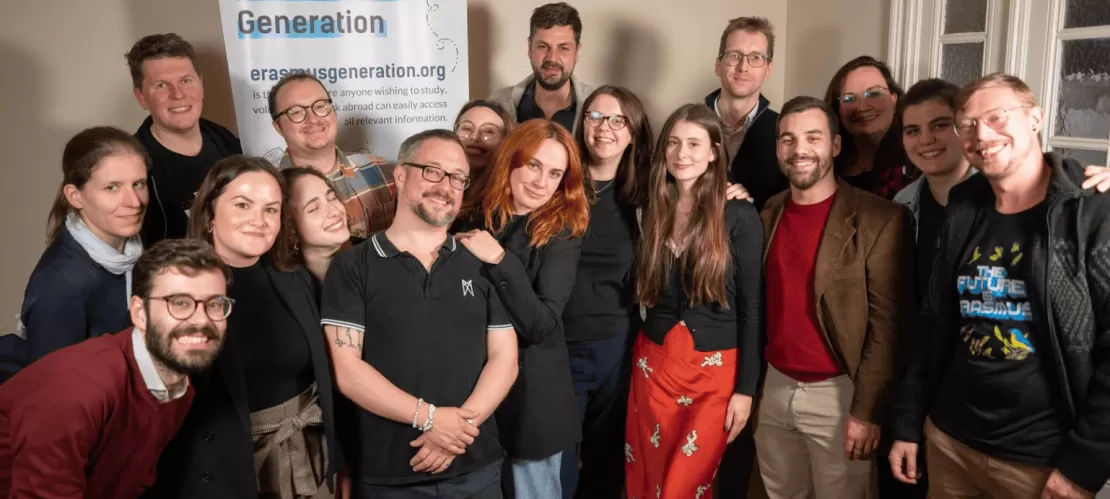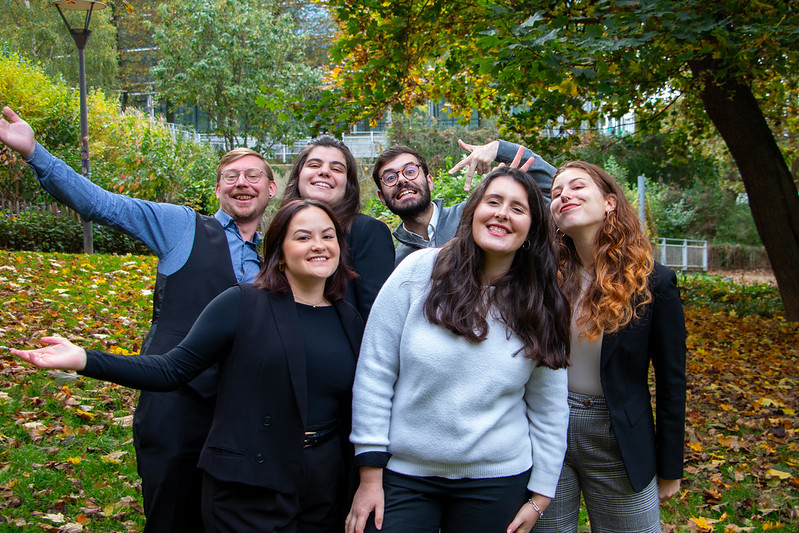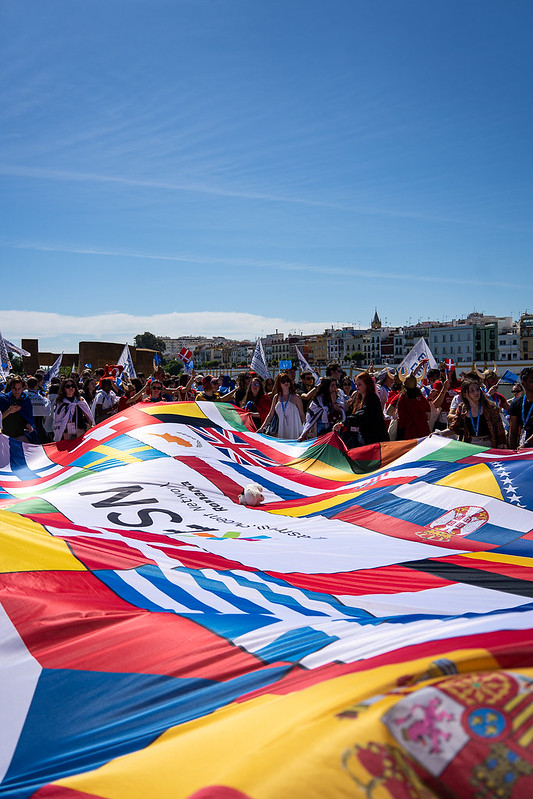
The history of ESN
ESN began in 1989, two years after the official start of the Erasmus+ programme with an evaluation meeting of 32 former Erasmus students by the Erasmus bureau which was held in Ghent, Belgium, and this event was the leading point of the beginning of our Network.
On the 16th of October of 1989, the very first ever ESN section was created in Utrecht, Netherlands, using officially for the first time the name Erasmus Student Network. Following that, ESN sections saw the day in various European universities and one year later, in 1990, the first official meeting of ESN International was held in Copenhagen, Denmark with 49 participants from all the member states of EC. At this moment, ESN International became a legal association and had the first president in history: Desiree Majoor, from Utrecht.
In 1994, the Network achieved the number of 60 sections in 14 countries and it was growing bigger by the year. 20 years later, the Network consists of 280 sections in 32 European countries and in Azerbaijan, Kazakhstan and Jordan. In 2005, ESN International decided to establish their headquarters in Brussels, Belgium, which is where most of the team work, as it’s where most of the European Institutions are present and help ESN.
What began with a handful of volunteers quickly grew into a European movement, united by the belief that mobility enriches lives and strengthens communities.
Achievements over the years
Over the past three and a half decades, ESN has become an empowering adventure with the Erasmus experience as it has expanded from an association to a structured network of 15,000 volunteers providing services such as Erasmusintern, which is a platform where companies and organisations can offer internships to individuals seeking for international opportunities. Through this platform, ESN promotes the Erasmus+ traineeship scholarships that are available to students. Another service provided is the ESNcard, which is a membership card that students have to access ESN events both in their host country section and in their home country as well as all around Europe where the Network is present. They can benefit from the discounts on a local, national and international scale.
Through flagship initiatives like the SocialErasmus project and ExchangeAbility, ESN aims to promote social attitude among young citizens by helping them to facilitate their integration into the local community, and provides mobility and accessible higher education opportunities for students with disabilities. Since 2022, ESN International has held an event called Erasmus Generation Meeting which took place this past year in Sevilla, Spain to celebrate the 35th Anniversary of its creation. This event is the biggest student-led conference in Europe and it is a synonym of diversity, dialogue and dynamism to reshape the contours of international mobility and youth engagement.
The Human Impact of ESN
ESN has transformed the experience of moving to a new country from a challenge into an inspiring journey of growth for countless students. It is more than finding an accommodation or navigating into administrative points, it’s about creating
connections that transcend borders. The volunteers and members offer a sense of belonging by organising events where students can feel integrated into a local community, share their culture, build friendships and create lifelong memories. For many, ESN becomes a family when they join the association as a volunteer back at home after their experience abroad. It becomes a turning point in their lives and their personal growth, in intercultural understanding and in professional opportunities.

What ESN means today
Diego, the Main Chair of the Communication Committee (ComCom) of ESN International, shares his perspective on what ESN represents today. ESN has evolved into more than just a student support network; it is a movement advocating for inclusion, accessibility, and mental well-being. One of its most significant achievements in these 35 years has been expanding its external reach and strengthening its organisational culture. A clear example of this is the Erasmus Generation Meeting (EGM) Sevilla 2024, which marked a defining moment in ESN’s history. This event became the largest conference ever organised by ESN–not just as a national event for international students, but as a global gathering featuring external representation from Higher Education Institutions and Authorities (Local, National and European), including representatives from the European Commission. EGM Sevilla 2024 showcased ESN’s commitment to shaping international mobility discussions and strengthening its role as a key player in the European educational landscape.
Moreover, ESN has continuously worked to change the perception and experience of student mobility in Europe. Since its foundation, it has been breaking barriers and helping local communities connect with international students as well as ensuring that those on mobility programmes feel welcomed at their destinations. The organisation has also faced challenges, particularly regarding volunteer retention. The average volunteer span is around two years, making it essential to keep entry-level positions accessible and to ensure a steady flow of new members to sustain leadership structures.
Throughout its evolution, ESN has solidified its place in the European and international educational context by advocating for European values, improving mobility programmes, supporting local communities, and closely collaborating with sending and receiving institutions. Its efforts in shaping education policies at both European and national levels have positioned ESN as a key player in student affairs.
Looking ahead, ESN’s legacy for future generations remained rooted in fostering an inclusive society–one that listens, respects and cares for both the environment and social causes.
Current and future ESN members are reminded to enjoy their volunteering journey while prioritising personal well-being, education and career goals. Volunteering in ESN is a rewarding experience, and when the time comes to move on, members should do so with pride in the contributions they have made to this vibrant network.

Looking ahead
As ESN marked its 35th anniversary this October, it’s a moment of celebration, gratitude and determination to continue its mission, which is to ensure that students from all backgrounds can have access to the benefits of international opportunities. The organisation recognises its role to play on global issues like inequality or climate change through education and advocacy. ESN is poised to inspire the next generation of global citizens. The future of the network is not just an individual journey but a collective step towards a more united and compassionate world.
Conclusion
The 35th Anniversary of ESN is not just about celebrating the past but it’s a reminder of the immense potential of unity, cultural exchange and youth empowerment. It’s a testimony of what can be achieved when individuals come together with a shared vision. As we look into the future, we not only celebrate an organisation but also a movement that continues to change lives and shapes a more connected, inclusive and understanding world and remains as a powerful potential of youth-driven initiatives to create meaningful changes.
